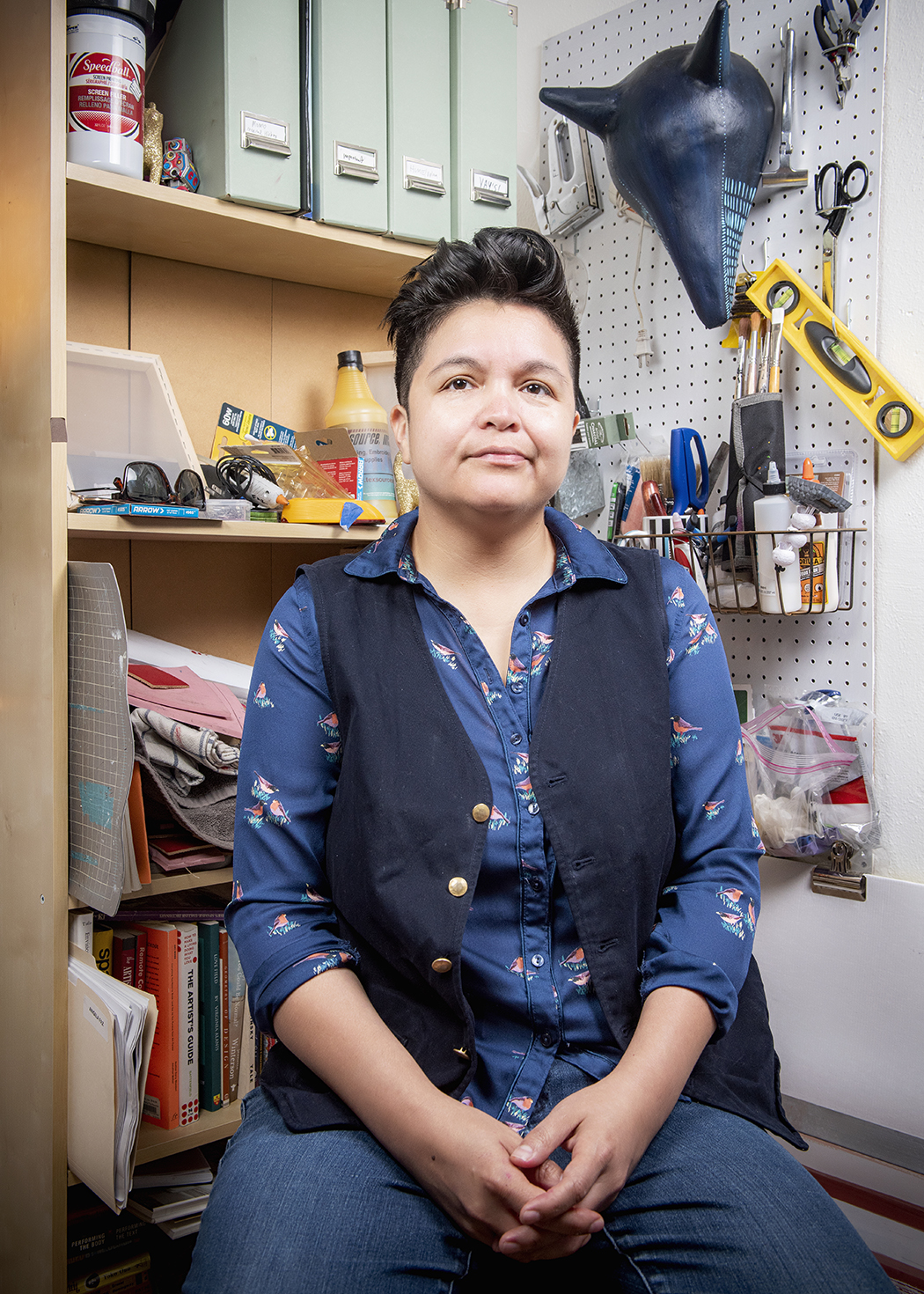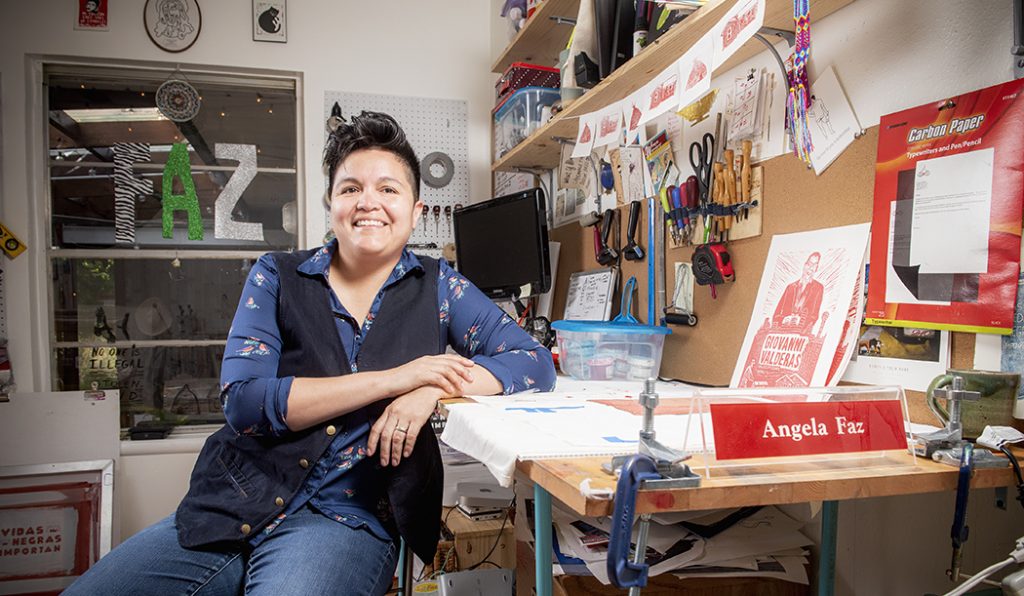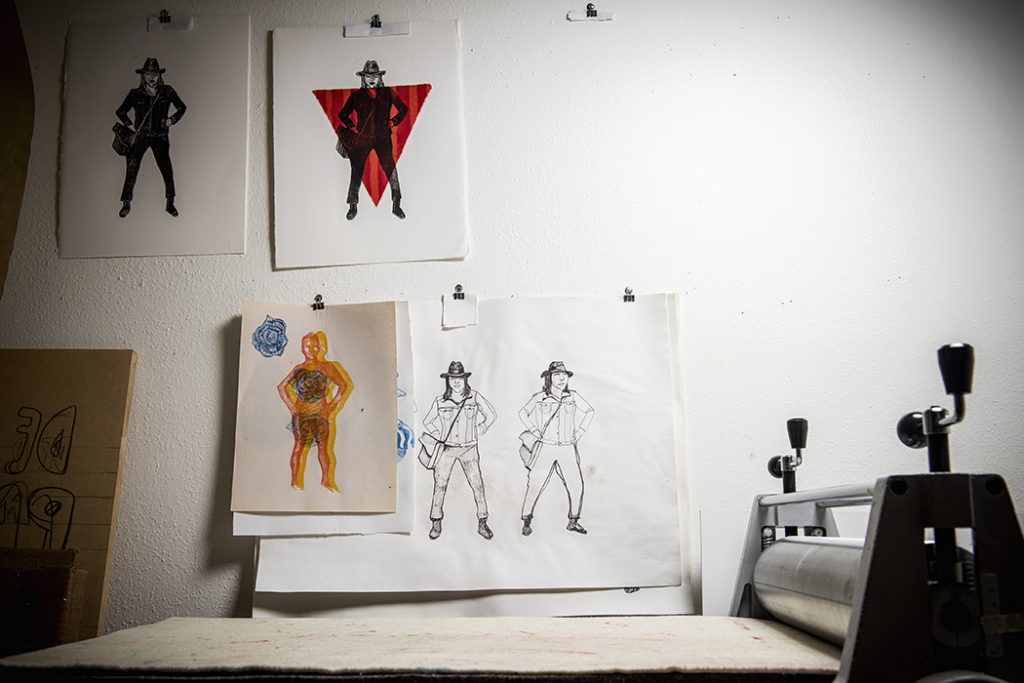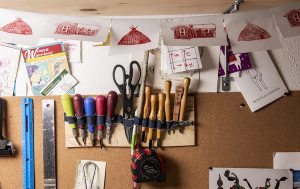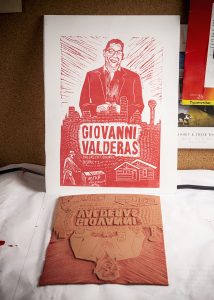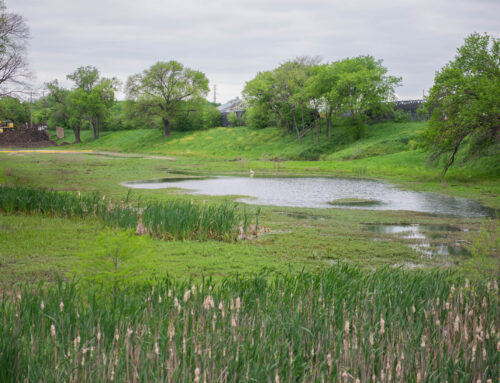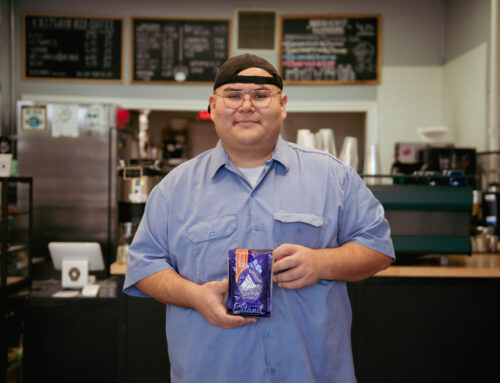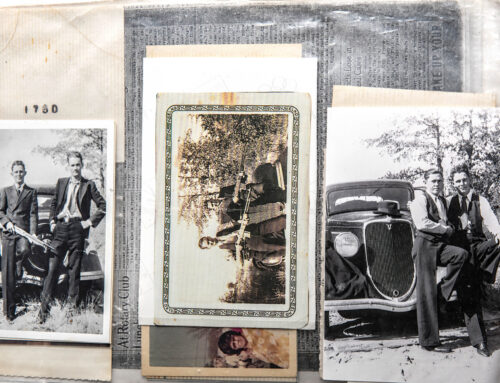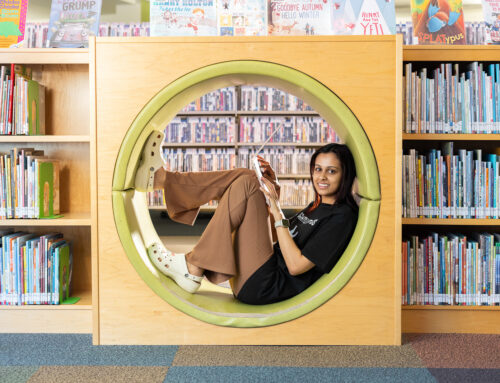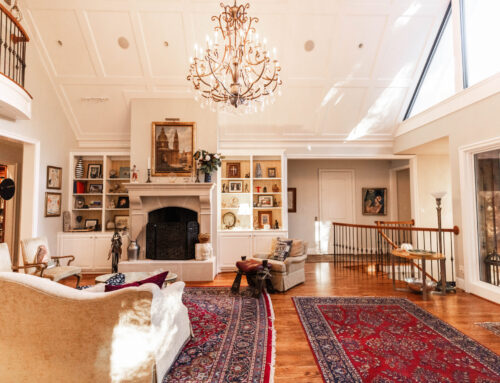Angela Faz grew up in the West Dallas neighborhood of Ledbetter in the 1990s.
Now Faz, 42, is a graphic designer who does app design and strategy for Dallas branding powerhouse Bottle Rocket by day, while starting a queer artists alliance in their own time.
In between that A-to-B trajectory, they graduated from Booker T. Washington High School for the Performing and Visual Arts and then dropped out of college to work painting houses, cashiering in convenience stores, and doing “all kinds of jobs” for years before graduating from Collins College with a degree in visual communication. As an artist who identifies as non-binary, Faz [who uses they/them pronouns] says they wanted to find out if there were other queer people of color around working in printmaking.
That’s how they started Radical Love Collective, which celebrates the traditions of Latin and American printmaking, such as linocut and screen printing.
The collective curated a show, “Hecho a Mano,” which runs through June 29 at the Dallas Public Library’s fourth floor.
The show features 20 Q+POC+Latinx artists from Austin, New York City, Denver and Puebla, Mexico. “Made by Hand” in English, the exhibit “crosses borders, tells un-told stories, professes its love of art, gente and kinfolk alike.”
- Photo by Danny Fulgencio
- Photo by Danny Fulgencio
What was it like growing up in Ledbetter?
It taught me a lot about being self-reliant. There was a lot of gang activity. In a way what saved me from that was my own identity. Being queer, back then, saved me. I didn’t have to conform to heteronormative stuff. I didn’t have to join a gang because I was already weird and queer and a lesbian. Of course then it was terrible. I had to learn to walk the streets with confidence. But it taught me a lot about survival and surviving through all kinds of experiences.
Like what?
I came out at 16 because my mom found a note. I was kicked out of the house. I went to Booker T., and luckily … my high-school girlfriend’s family took me in. My beginning years were in Ledbetter, and when I went to live in Stevens Park, just a few miles away, that was like my study-abroad experience. It taught me about a different culture.
What did you do after Booker T.?
I got a partial scholarship to the Savannah College of Art and Design. It was the first-generation college thing. My family’s been here in West Dallas for several generations, and no one went to college. I had zero support, and I had never lived away. I tried to go to Brookhaven College, but I wasn’t ready for that either. I had a very strict upbringing. So I decided to go get a bunch of jobs and just live.
Why did you eventually decide to go to college?
I went back to school in 2002. After Sept. 11 … I did a stint with Kristy Krüger; she’s a folk singer in Dallas. She knew I was doing all kinds of jobs, and she said, “You’re really good at this. You could get a degree in graphic design and make a good living.” I went with the intention of learning design as a trade. I started out so far behind the starting line for just regular things. It’s not a given that people graduate from high school. From the people I come from, I had to choose something that was practical. I found I had a knack for it.
How did you start Radical Love Collective?
I had a residency at Arquetopia Foundation in Puebla, Mexico that inspired this collective. I didn’t know any queer printmakers in Dallas, maybe one. We just launched it in January, and I’ve met a lot of people I didn’t know before. Our focus is on printmaking and silkscreen. That’s the most manageable thing for me, with a fulltime job and taking care of my parents. My goal with my own art is less about making things and instead making more experiences. My medium has mostly been linocut and working within my own ancestry but also with my own identity.
What is the idea behind the collective?
Going to Arts Magnet was a great launching point for me, but I had some things that stalled me out as far as larger institutions of oppression. If you get a lot of people with similar backgrounds together and start talking and communicating about their own experiences, it makes all the difference.
What is on your mind right now regarding the recent attacks on trans women?
Being a Dallas native, we have the worst record when it comes to people. We’re the No. 1 one deporter [Editors note: the Dallas I.C.E. region deported more people than any other I.C.E. region in 2017]. Child poverty is terrible. Housing is deplorable. And now this. We want people to be held accountable. We can all participate in trans visibility. I just want to be there for them any way I can, and so should everybody. Once they come for trans people, they can come for anybody. It opens the door for all kinds of unruliness.
What’s next for Radical Love Collective?
The next thing is finding a space to host us at a more regular interval. What’s important to us is: how can we make creative responses to oppression? I would like to put together a lending library for printmaking tools. It’s an experiment. In Portland, where I lived for awhile, you have access to renting tools with your library card. There’s nothing like that in Dallas. People who want to make art but are struggling to pay rent, and maybe have terrible credit. Having those tools available would be great. As a teacher, I would like to have some kind of studio space. But we’re modeling empowerment. There’s no leader among us, but we’re all leaders. We want to have workshops and ask what’s important to our community and how can we feature the intersections of identity. I don’t know how long this experiment will work. I’m not the leader of it. I’m just kicking off some sparks.

